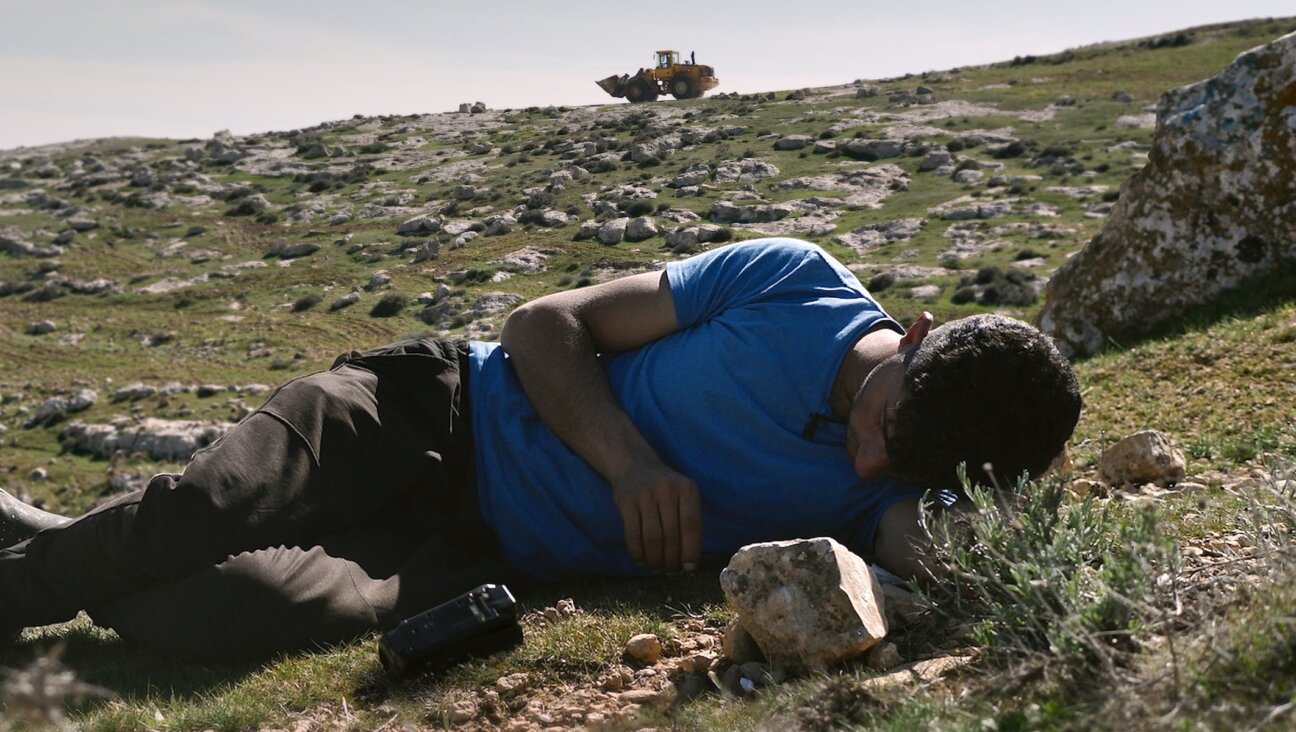Collector of Billion-Dollar Nazi-Looted Art Trove Denies Works Were Stolen From Jews

Art Cave: Cornelius Gurlitt lived a secluded life in this apartment, keeping the shades drawn and his door locked. Image by getty images
The German recluse whose billion-dollar art hoard was seized by authorities has broken his silence to ask for the pictures back and to deny his father, an art dealer for Hitler, ever extorted any from Jewish owners.
In an interview with Der Spiegel, his first substantive comments since the mysterious trove was revealed two weeks ago, 80-year-old Cornelius Gurlitt recalled helping his father save some of the works from wartime Dresden and said the state had no right to impound treasures he called the love of his life.
Compared to the deaths of his father Hildebrand, his mother or his sister, “parting with my pictures was the most painful of all”, Gurlitt told the magazine. “I haven’t loved anything more than my pictures in my life … But hopefully it will all be cleared up soon and I will finally get my pictures back.”
Dismissing suggestions he might return some of the 1,406 paintings and drawings to survivors of Nazi persecution, the frail-looking Gurlitt insisted he inherited them legally and sold only an occasional masterpiece from his Munich apartment to cover medical and living expenses, as he claimed no pension.
“I’m giving nothing back willingly,” he said.
Customs officers found him crossing the Swiss border by train in 2010 with a large sum in cash, eventually prompting a raid on his apartment early last year. Prosecutors confiscated works by Renaissance and Modernist masters, some long thought lost in the war, others hitherto undocumented.
The authorities valued at 1 billion euros ($1.35 billion) a collection that includes works by Picasso, Otto Dix, Matisse, Chagall and German expressionists like Ernst Ludwig Kirchner.
But Gurlitt, who kept out of sight after the story broke, said he could not understand what all the fuss was about.
“I’m not Boris Becker,” he said of the former tennis star who fell foul of the tax authorities in Munich a decade ago. Complaining of journalists ringing his doorbell while he hid inside, he added: “What do these people want from me?”
“I am really very quiet,” he said of a lonely life without employment and overshadowed by the legacy of a dominant father.
“All I wanted was to live with my pictures.”
GOVERNMENT EMBARRASSED
Since another German magazine broke the story of the find, the Berlin government has faced sharp criticism at home and abroad for keeping it secret for nearly two years.
Having initially declined to give full details, the government has now begun posting more online to help people hunting works stolen by the Nazis, or bought under duress, from Jews fleeing persecution before and during the Holocaust.
But the legal status of the hoard is unclear. Lawyers working on reclaiming property for heirs to Jewish collectors say Gurlitt may get to keep at least some.
Some works may have been acquired when the Nazis ordered German curators to strip from their galleries the “degenerate art” that Hitler, a former student of painting, disliked.
Gurlitt said his father, an art historian hired to sell such works to raise funds for the Nazis and also to found a “Fuehrermuseum” near Hitler’s birthplace, would not have stolen from Jews or taken advantage of those forced into selling.
“It could be that my father was offered things privately but he certainly wouldn’t have taken it,” Gurlitt told Der Spiegel. “He would have considered that wrong.”
Hildebrand Gurlitt used his own partly Jewish origins, which had cost him his job in the 1930s, to avoid prison as a Nazi official after the war. After he died in car accident in 1956, his widow told officials his collection was destroyed along with the family home in the Allied bombing of Dresden.
CHAGALL ON THE SHELF
Cornelius said he himself had had “nothing to do with acquiring the pictures, only with saving them”. He spoke of helping his father load them onto a truck as Soviet troops approached Dresden and of moving them first to a nearby farm, then to the castle of an aristocrat in southern Germany.
While his father, a scion of a celebrated cultural dynasty, rubbed shoulders with the avant-garde artists and writers of his day, the son dropped out of art history studies and remained dependent on his parents and younger sister.
Yet he went on to outlive them all, alone in his flat with a Kirchner over his bed and a Chagall on a shelf.
Speaking to the interviewer during what he called a regular trip to see a heart specialist in another city, Gurlitt said he had no lawyer to represent him as state prosecutors decide what to do with the artworks: “Because I never needed one,” he said.
Pictured on the cover of Der Spiegel over the headline “Conversations with a Phantom”, the white-haired Gurlitt smiled nervously, sitting aboard a train in an overcoat and scarf.
At times, he seemed to contradict himself.
“I’ve never committed a crime,” he said. “And if I have, it would have already expired,” he added, referring to the statute of limitations on offences. While probing the provenance of the artworks, prosecutors have laid no charges, though officials say they are looking into possible tax and customs duty fraud.
Gurlitt said the last painting he sold was Max Beckmann’s “The Lion Tamer”, from 1930, trough a German auction house in 2011. He said he shared the 725,000 euros proceeds with people who he said claimed to be the rightful owners, using his share to finance his upkeep and his medical bills – he needed money, he said, because he had not claimed his state pension.
“I am not as brave as my father. He lived for his art and fought for it,” said Gurlitt. “Now the pictures are in a cellar somewhere and I’m all alone. Why couldn’t they just leave the pictures and only take the ones they wanted to check? Then everything wouldn’t be so empty.”
“They could have waited for the pictures until I am dead.”
A message from our Publisher & CEO Rachel Fishman Feddersen

I hope you appreciated this article. Before you go, I’d like to ask you to please support the Forward’s award-winning, nonprofit journalism so that we can be prepared for whatever news 2025 brings.
At a time when other newsrooms are closing or cutting back, the Forward has removed its paywall and invested additional resources to report on the ground from Israel and around the U.S. on the impact of the war, rising antisemitism and polarized discourse.
Readers like you make it all possible. Support our work by becoming a Forward Member and connect with our journalism and your community.
— Rachel Fishman Feddersen, Publisher and CEO





















